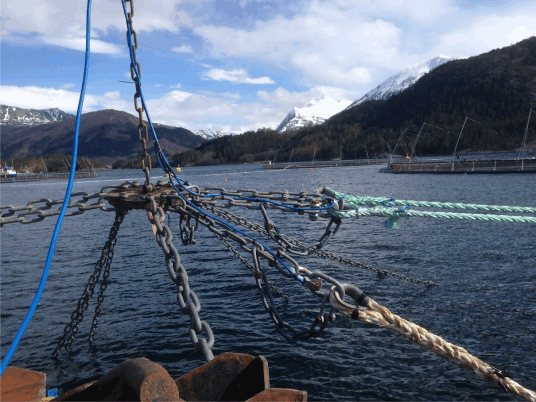Precision Aquaculture: How Advanced Load Cells Enhance Fish Farm Productivity 📰
3rd Jul 2025
The expanding global seafood market is driving aquaculture operators to develop better, more efficient and more sustainable methods of fish production. In order to scale up production to meet demand, the aquaculture industry has developed the concept of precision aquaculture. The idea is to increase operational efficiency while decreasing environmental impact, all the while optimising production. Advanced load cells drive the digital change of fish farming operations by performing an essential yet frequently overlooked function in increasing farm productivity.
What are Advanced Load Cells?
Load cells serve as sensors that transform physical weight or force into electrical signals for engineering and industrial applications. The aquaculture industry uses load cells for several functions including feed monitoring, cage weighing, mooring tension measurement and biomass estimation. The everyday use of load cells enables fish farmers to extract vital information that enables better decision-making, safer operations and higher profitability.
A main function of load cells in aquaculture involves precise feed monitoring systems. The cost of feed represents the highest expense for fish farming businesses, consuming more than 50% of their total spend. Overfeeding wastes resources and causes water quality deterioration. This means poor fish health and higher death rates. When feed distribution is inaccurate, fish growth slows, and harvest periods become longer and costlier.
Load cells let fish farmers accurately track feed distribution across cages using monitor storage and precise dispensing systems. Real-time weight data from load cells positioned under feed silos and barges helps operators monitor feed consumption. The exact measurement capabilities enable better feeding protocols which promote consistent and efficient feed distribution. Such monitoring capabilities are especially important for farms situated offshore, or in difficult-to-access areas because they support remote operation and automation.
-
The result? Happy, healthy fish
-
Less Stress for Fish and Farmers
Load cells deliver additional value to aquaculture operations by monitoring biomass levels. The correct measurement of fish weights inside cages serves as an essential factor for harvest planning, feed management and meeting stock density rules. The traditional biomass estimation process requires fish netting and manual weighing of samples. This is less accurate, costs more and is traumatic for the fish themselves.
Modern cage weighing systems use submerged platforms equipped with load cells to measure either the complete cage weight or specific sections. These underwater weighing systems track fish population weights along with growth rates through ongoing real-time measurement. This data allows farm managers to improve their predictions of harvest readiness while optimising feed ratios. Once again, cheaper and less stressful for the fish.
Proactive Safety Measures
Marine aquaculture operations require special attention to safety because of the often challenging environmental situations. Mooring lines used for floating cages are monitored from load cells that anchor these cages to the seabed. Problems become visible through increased tension which might stem from anchor movement, powerful currents or structural defects in the cage framework.
The real-time monitoring of mooring line loads through load cells enables operators to extract immediate data about the forces acting on these lines. The implementation of early detection systems through load cells allows for prompt action to decrease the likelihood of cage breakaways and fish escapes. Crew members benefit from remote mooring tension tracking which enables them to respond to alerts through electronic systems instead of risky diver inspections.
Precise measurement of fish weight serves essential economic and regulatory purposes when transferring fish between sea cages and well boats and from harvest points to processing facilities. The use of portable and fixed load cell systems generates accurate, dependable weight measurements which optimise logistical operations and effectively removes human error.
Why LCM?
The operational data collected through load cells can be combined into extensive aquaculture management systems. Real-time information from the system optimises feeding strategies, tracks growth patterns and forecasts production output through models. LCM Systems maintains its position as a leading developer of advanced load cells for challenging conditions that include aquaculture. Our products maintain long-term reliability through their resistance to saltwater corrosion and ability to handle both pressure and temperature changes in marine environments. We produce custom-designed systems that address applications such as individual cage systems or distant offshore operations for varied aquaculture facilities.
Our experience in delivering integrated systems provides our clients with a complete solution that includes signal conditioning, wireless telemetry and data logging. The integration of load cell measurements with access to precise data and straightforward interpretation and implementation capabilities makes this system ideal for current farm operations.
Cutting Edge Tech
Technology plays an expanding role in the aquaculture industry. Striking a balance between increased production with reduced environmental impact, waste output and risk levels is not an easy task. The necessity of precision aquaculture has rapidly shifted from a futuristic pipedream to an absolute necessity. The advance of fish farming systems depends on load cells because they deliver essential precision and durability alongside intelligent capabilities for better system control.
The increasing demand for seafood presents a huge challenge to supply this market without harming either sustainability or profitability. Fish farms are now considering load cell technology investment as a strategic approach to build and modernise operations while upholding responsible aquaculture practices.
For more information on using Advanced Load Cells, Contact LCM today
